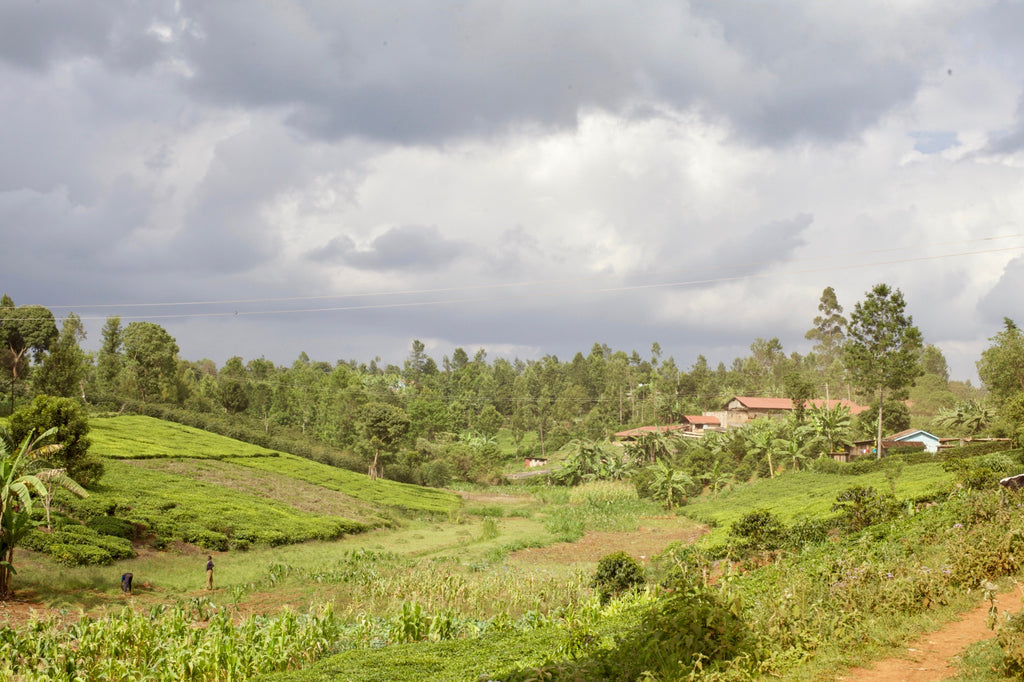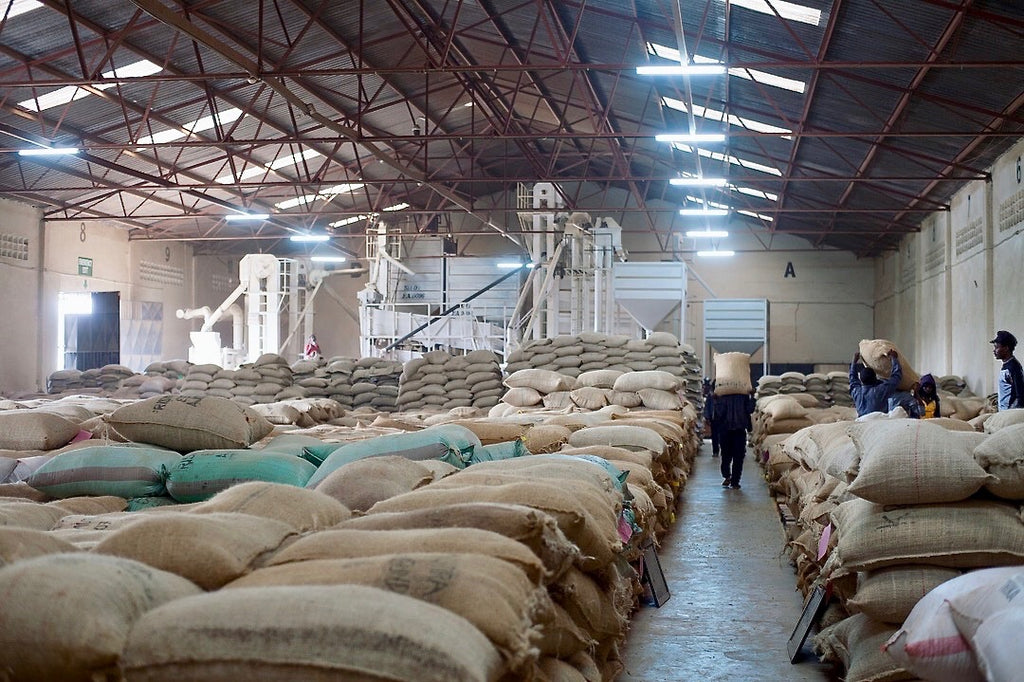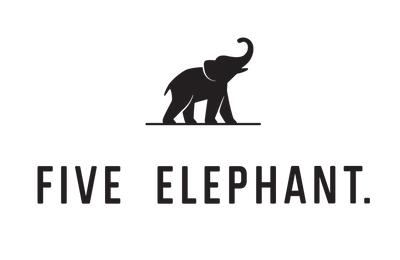Kenya Journals by Kris Schackmann - Five Elephant's co-owner and green coffee buyer.
----
In December 2017 we went to Kenya, and brought back some coffee that we are exclusively serving in our cafes now. However, there’s a longer story of why we went to origin, that we would like to tell.
From practically the first year of Five Elephant’s existence, we have focused on working as directly as possible with the producers who grow the coffee we want to roast.
Initially, it was an idea that we had seen taking root in the USA, but also starting to gain interest with some forward thinking roasters in Nordic Countries and from one of the first roasters we met in Hamburg.
The allure of seeing where the coffee we drink comes from, while exotic and effective for marketing, is a loaded subject that is about as complex as any system could possibly be.
When we started roasting in 2010, there were so few companies who would sell us green coffee under 1 pallets worth (600kg) that you could count them on 1 finger. Seriously, there was only 1 company who would do it. So while we did have an interest in working directly, we also incubated the idea as being the only possibility to achieve our own drive for quality.

The exploration of the origins of coffee can be intoxicating. Who wouldn't want to travel the world, see new countries and meet amazing, hardworking and dedicated people? For the last years we have bought around 70% of our coffee directly from producers or exporters at origin and it is one of the primary reasons we have been able to roast coffees with a particular cup profile that we could not regularly or easily find from most importers.
So while our working at origin started as a way to explore coffee quality, it actually was more that we worked with great producers (mostly in Central and South America) who already have benefited from years of feedback from green buyers and roasters, primarily from the USA. I know that a lot of roasters say they direct “their” farmers to pick the ripest cherries etc, but from our experience, most roasters pick their coffees on cupping tables and have little to do with the full production of coffee. With a particular emphasis on Kenya for this article, it seems to me that it is quite rare for a coffee roaster to actually spend more than a few hours on a particular farm during an origin visit. Of course, there are notable exceptions and wonderful Roasters who are doing great work in Kenya, but for the most part its coffee tourism in Kenya.
Why is this important to highlight?
It has taken us a while to understand what value we add from going to origin. We certainly don’t help the environment by burning jet fuel on our quests for coffee. So while it is something used for marketing that we have a “connection” with Kenya, we spent a few years on a rather selfish quest for higher quality beans, before they are purchased for selling as spot positions by green bean importers.
Of course there was a residual effect that the producers we worked with, in the advent of social media platforms like Instagram, got to see their coffee names in cafes all over the world, but after some time we struggled with what value of substance we were leaving after our visits to origin.
Then came our February 2016 visit to Kenya.
Perhaps no single week of our companies history brought us closer to closing up and quitting coffee than that week in February. It exposed some critical misunderstanding we had in our sourcing ideas and also highlighted our own inadequacies in understanding how to be responsible green bean buyers.

Kenya, for as long as we have been aware, has been a country with one of the highest standards for coffee production in the world. The beautiful profile of the SL coffees, mixed with the highly fertile red phosphoric soils, high altitude and abundance of clean water is practically perfect for growing coffee.
In Kenya, coffees are either sold through a centralized governmental auction, or through a marketing agent. Producers of coffee in Kenya are either private farms called Estates, or large cooperatives with hundreds if not over 1000 members all contributing to the same lot of coffee that is milled in a given day. Most Estates have at one time or another been a member of a cooperative and most cooperatives have worked with Marketing Agents.

Marketing Agents, such as in the case of one we work with Coffee Management Services (CMS), have trained agronomists who spend all of their time visiting Estates and Cooperative whose coffee they market, to check quality, provide agronomic advice such as fertilization and fungicide management, wet milling and drying techniques. Most cooperatives or Estates do not have a moisture meter to know when their coffee is at precisely 10.5% moisture content, so they rely on their agronomist to visit frequently to monitor their drying times and advise on the coordination to move the coffee (still in parchment) to the dry mill for short-term storage and then dry milling and shipping.
So in our experience, the fact that the coffee is so thoroughly cleaned and dried on raised beds in coordination with an agronomist and a professional Marketing Agent who has its own QC lab combined with an exporter who has strict guidelines for coffee they send halfway around the world to customers, was quite a safe country to work with.
----


Leave a comment